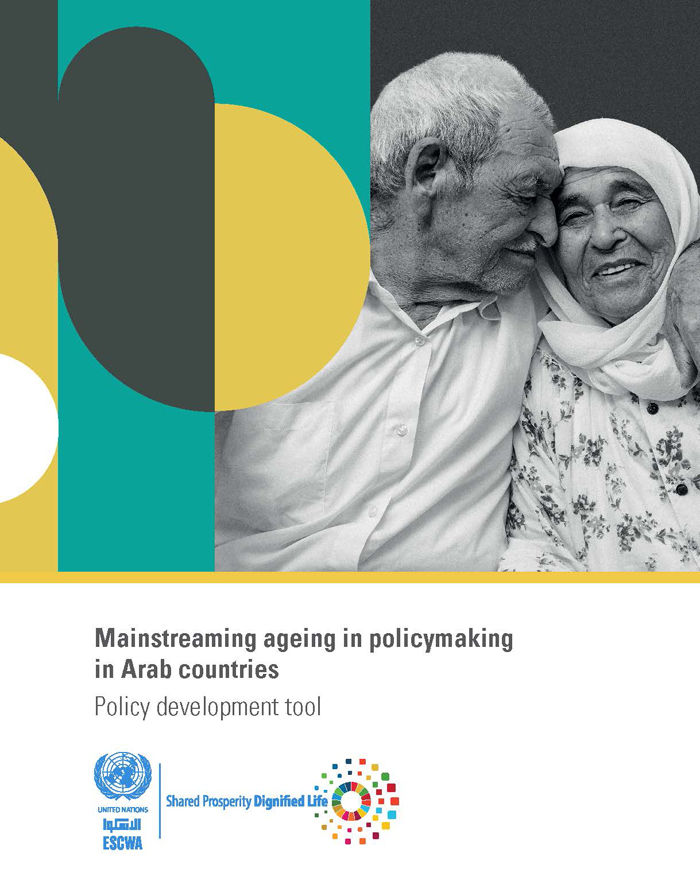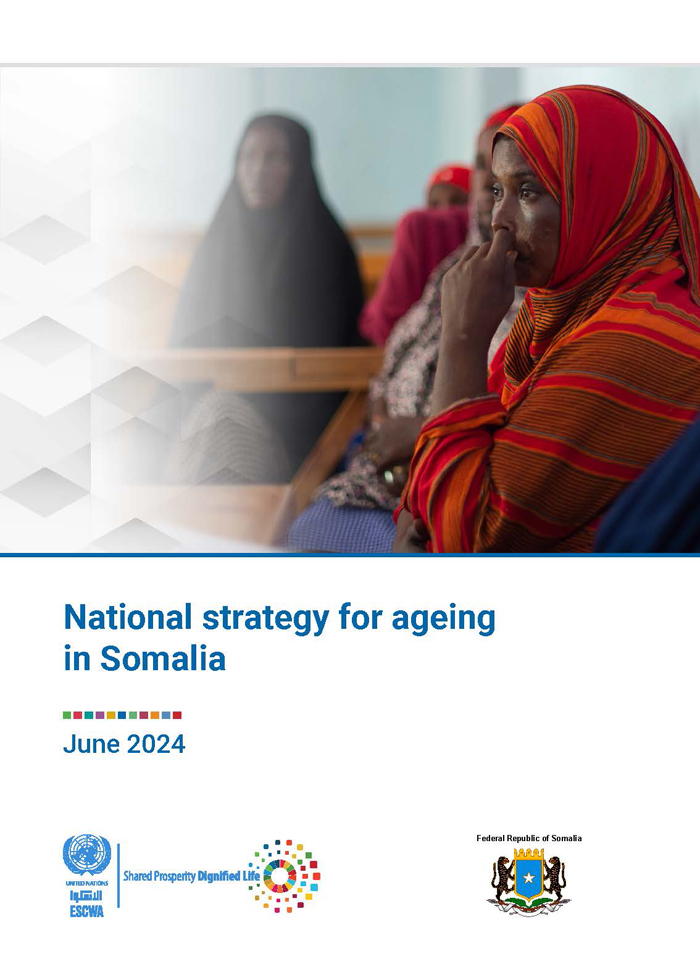
ESCWA Publication: E/ESCWA/CL2.GPID/2021/MANUAL.1
Country: Arab region
Publication Type: Training material
Cluster: Gender Justice, Population and Inclusive Development
Focus Area: Inclusive development
Initiatives: Arab Digital Inclusion Platform
SDGs: Agenda 2030
Keywords: Ageing, Ageing persons, Population, Population trends, Social development, Sustainable development, Arab countries, Population policy, Social security
Mainstreaming ageing in policymaking in Arab countries: Policy toolkit
November 2021
The toolkit consists of three units, the first of which includes the conceptual framework for integrating ageing issues in policymaking. The second unit focuses on the mechanism and various stages of developing an action plan to integrate ageing issues. The third unit addresses seven modules that reflect older persons priorities and these include: social protection; financial autonomy and income security; health; ageing in place; social inclusion; an enabling environment supporting the participation of older persons; and protection of older persons from discrimination and abuse.
Each module constitutes a tool for reflection, by addressing several questions that would guide users, and tackles related international frameworks. Thus, the toolkit does not intent to provide answers but rather trigger collective thinking to devise solutions that fit each country's situation.
Related content
Inclusive development
,
The toolkit consists of three units, the first of which includes the conceptual framework for integrating ageing issues in policymaking. The second unit focuses on the mechanism and various stages of developing an action plan to integrate ageing issues. The third unit addresses seven modules that reflect older persons priorities and these include: social protection; financial autonomy and income security; health; ageing in place; social inclusion; an enabling environment supporting the participation of older persons; and protection of older persons from discrimination and abuse.
Each module constitutes a tool for reflection, by addressing several questions that would guide users, and tackles related international frameworks. Thus, the toolkit does not intent to provide answers but rather trigger collective thinking to devise solutions that fit each country's situation.



